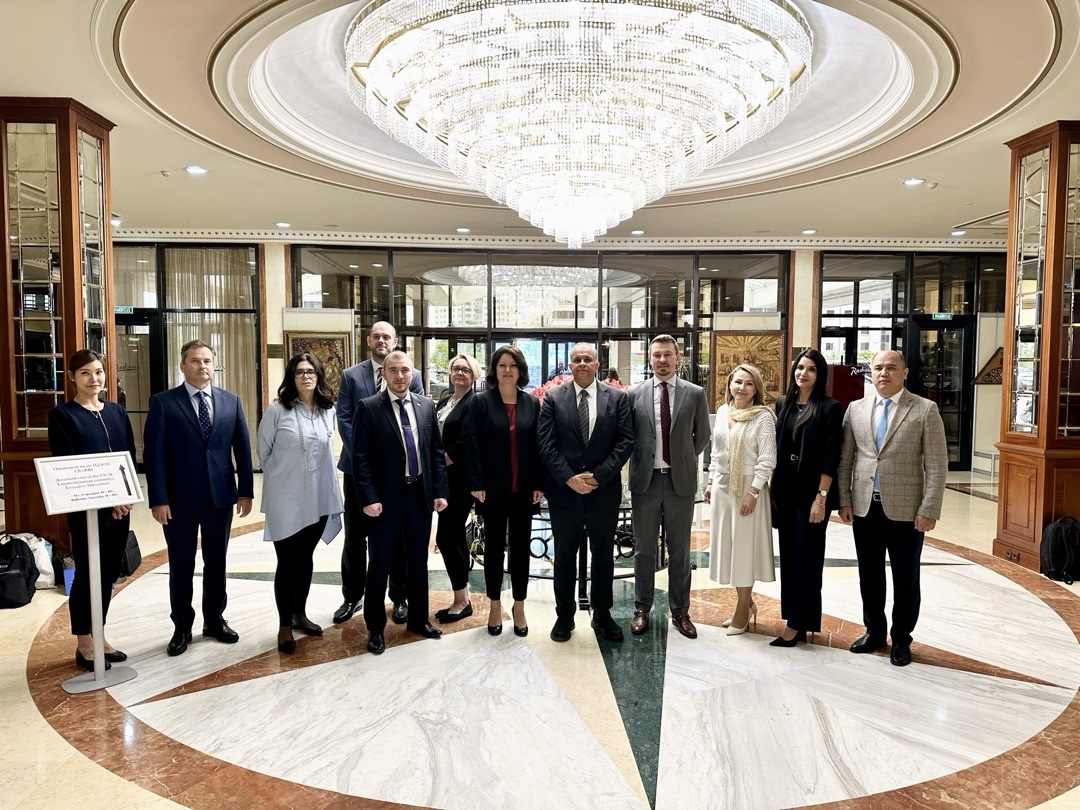-

28 May, 2024
From 20 to 24 May 2024, the Counter-Terrorism Committee Executive Directorate (CTED), on behalf of the Committee, conducted an assessment visit to the Republic of Kazakhstan in follow-up to the comprehensive visit, which took place in 2016. CTED conducts these visits to assess Member States’ counter-terrorism efforts, including progress made, remaining shortfalls, and priority areas for technical assistance needs, as well as to identify terrorism-related trends and challenges and good practices employed in the implementation of relevant Security Council resolutions.
The visiting delegation was led by Mr. Ahmed Essmat Seif El-Dawla, CTED Chief of Section (Europe, Central Asia and the Middle East), and comprised a Senior Legal Officer, a Legal Officer, a Human Rights Officer, and an Associate Expert, as well as experts from the following United Nations bodies and international organizations: the United Nations Office on Drugs and Crime (UNODC); the International Civil Aviation Organization (ICAO); the International Criminal Police Organization (INTERPOL); the United Nations Regional Centre for Preventive Diplomacy in Central Asia (UNRCCA); the Regional Anti-Terrorist Structure of the Shanghai Cooperation Organization (RATS SCO); the Eurasian Group on Combating Money Laundering and Terrorism Financing (EAG); the Organization for Security and Cooperation in Europe (OSCE); and the International Organization for Migration (IOM). The visit enabled the delegation to assess progress made by Kazakhstan in adopting measures to implement Security Council resolutions 1373 (2001), 1624 (2005), 2178 (2014), 2396 (2017), 2462 (2019), 2617 (2021), and other relevant resolutions on counter-terrorism.
During the visit to Kazakhstan, the expert discussions focused on counter-terrorism legislation and criminal justice responses to terrorism; international cooperation in criminal matters; measures taken to counter the financing of terrorism; law enforcement; border management; aviation security; measures to counter violent extremism conducive to terrorism; and implementation of national integrated and comprehensive strategy on countering terrorism and violent extremism conducive to terrorism. The human rights aspects of Kazakhstan’s counter-terrorism measures and the role of women in countering terrorism and violent extremism conducive to terrorism were also raised during the discussions.
The EAG Secretariat will take into account the recommendations of the UN CTC following this visit in order to improve the effectiveness of technical assistance to the Republic of Kazakhstan.
https://www.un.org/securitycouncil/ctc/news/cted-concludes-follow-visit-republic-kazakhstan

 Login to your account
Login to your account Eng
Eng Рус
Рус